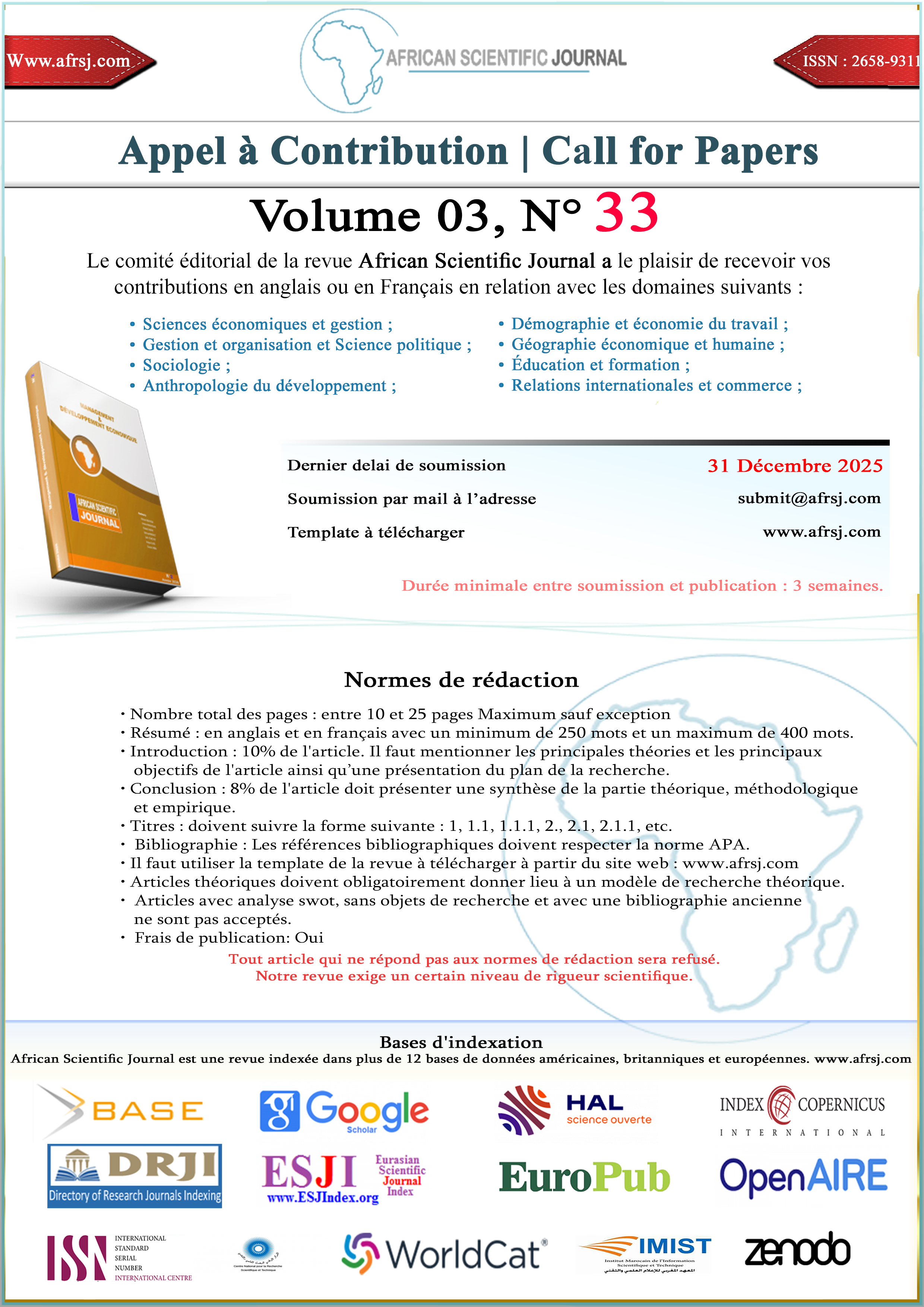The Problem of Deteriorating Water Resources and State Intervention: Rescue the Chtouka’s Oulja as an Example.
DOI :
https://doi.org/10.5281/zenodo.15332108Mots-clés :
Oulja of Chtouka - Coastal Chaouia Aquifer – Qualitative Degradation of Groundwater - Quantitative Degradation of Groundwater - Landsat Satellite ImagesRésumé
Abstract
The Oulja of Chtouka is a large natural zone which lies close to the Atlantic coast, between the city of Casablanca to the northeast and the city of El Jadida to the southwest. Back to the period of the Moroccan protectorate, it has seen intense agricultural activity. This activity has grown steadily with the introduction of market garden crops, taking advantage of the "Coastal Chaouia" water table’s proximity. However, since the beginning of the last two decades, there has been a decline in this activity, with the closure of many wells, either due to their drought or their high salinity, indicating a quantitative and qualitative deterioration in water resources. As part of the Green Morocco Plan, the government has developed a project to rescue these agricultural activities. The purpose of this document is to identify the changes that have impacted water resources and agricultural activities in the Oulja of Chtouka. We have adopted a systemic approach that aims firstly, to analyze the factors that have led to the quantitative and qualitative degradation of water resources. Then, find the correlation between this degradation and the decline in agricultural activities by using the "NDVI" vegetation index, and analyze how greenhouses diffuse over time using topographic maps and google earth images. Finally, validation of these results has been through field work. We will also highlight some individual initiatives aimed at overcoming these constraints, culminating in state intervention through the "Chtouka’s Oulja rescue" project. The adopted approach resulted in obtaining several key findings. Firstly, the intensification of agricultural activities since the Protectorate has led to both qualitative and quantitative degradation of groundwater. Secondly, this degradation has had a negative impact on farming activities. Thirdly, while several individual initiatives were launched, they were limited in their effectiveness. Finally, the state attempted to address the issue by launching a program aimed at saving farmland using Oum Er-Rbia water.
Keywords: Oulja of Chtouka - Coastal Chaouia Aquifer – Qualitative Degradation of Groundwater - Quantitative Degradation of Groundwater - Landsat Satellite Images.
Téléchargements
Publiée
Comment citer
Numéro
Rubrique
Licence
(c) Tous droits réservés African Scientific Journal 2025

Ce travail est disponible sous licence Creative Commons Attribution - Pas d'Utilisation Commerciale - Pas de Modification 4.0 International.





















